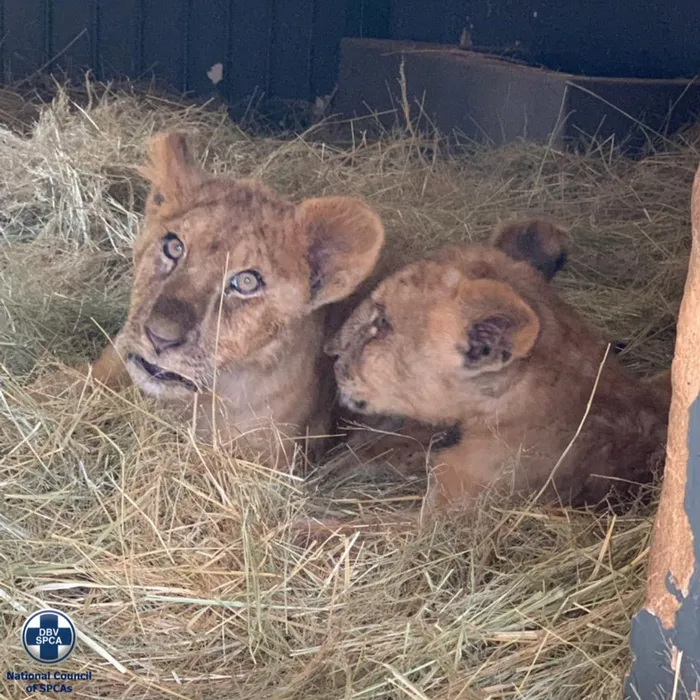Abused lion cubs case goes to trial

Karlos and Ivana. | NSPCA
DURBAN - The National Council of NSPCA case where the organisation seeks justice for the abuse of lion cubs Karlos and Ivana has been adjourned for trial in April.
The cubs had been rescued by the NSPCA in 2019.
“The trial was set to continue from Wednesday this week, however, due to technical issues in court, the trial could not proceed,” the NSPCA said.
Last Wednesday the Daily News had reported that the NSPCA was expected to make its first court appearance in the case involving the rescue of the cubs.
Karlos and Ivana were in poor health and living in such deplorable conditions when they were found that the NSPCA’s Wildlife Protection Unit had to remove the cubs in 2019.
The NSPCA said the animals were not only sick and left without adequate veterinary treatment, but there were also other concerns such as inadequate shelter, small enclosures and unhygienic living conditions.

“The cubs are set to turn 3 on February 14, which is a clear indication of their determination to survive despite the neglect they were subjected to by their previous owner,” the NSPCA said.
The organisation laid criminal charges against the owner and the staff of the facility on May 2, 2019.
The cubs remain under the watch of Dr Peter Caldwell and the team from Panthera Africa Big Cat Sanctuary in the Western Cape, where the cubs live.
In 2019, the sister publication the Cape Times reported that in May 2019 inspectors from NSPCA Wildlife Protection Unit obtained a warrant after receiving a complaint regarding lions in the North West that were in a shocking condition.
When inspectors arrived at the site, they were horrified to find two lion cubs unable to walk and showing signs that they were suffering from a neurological condition.
The NSPCA removed the two cubs for assessment and veterinary treatment by a specialist carnivore veterinarian.
Other issues such as small enclosures and inadequate shelter, no provision of water, overcrowding and filthy and parasitic conditions were noted in the camps that contained lions, caracals, tigers and leopards.
Twenty-seven of the lions had mange and the caracals were obese and unable to properly groom themselves.
Daily News
Related Topics: